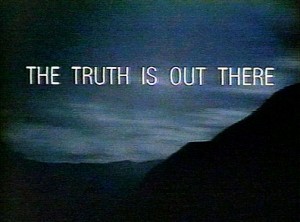Going Public Attorney Blog – Opportunist Interview
The perspective of a practicing securities attorney is often influenced by the securities laws and regulations and his or her personal experiences within their profession. In order to provide a practitioner’s perspective of current issues involving microcap stocks, we discussed securities transactions with a practicing securities attorney named Brenda Lee Hamilton from Hamilton & Associates Securities Law Group in Boca Raton, Florida. Brenda Hamilton has graciously offered to share her expertise with our readers. Brenda’s practice is focused primarily in the areas of securities regulation and compliance, going public transactions, and initial and direct public offerings. She has extensive experience assisting in going public transactions, counseling public and private companies about the securities laws.
Opportunist: What do you believe are the biggest concerns of microcap issuers today?
Hamilton: The obvious is the lack of capital available to small cap issuers. Additionally, a big concern is the increase in issuers losing DTC eligibility. In my experience, it is almost inevitable that with microcap issuers there will be, at some point some form of issue concerning DTC eligibility. This may involve an initial request for DTC eligibility or compliance matters related to maintaining eligibility.
Opportunist: Why is DTC eligibility so important to public companies?
Hamilton: DTC is the only stock depository in the U.S. When DTC provides services as the depository for an issuer’s securities, its securities can trade electronically. Without the ability to trade electronically, it is almost impossible for an issuer to establish an active market in its securities. Without an active market it is difficult for issuers to obtain funding.
Opportunist: How does an issuer become DTC eligible?
Hamilton: Issuers must satisfy specific criteria established by DTC to receive initial DTC eligibility and to remain DTC eligible. Even after an issuer’s securities become DTC eligible, DTC may limit or terminate its services. DTC limits its services by placing a DTC chill on a security and terminates its services by placing a lock on the security.
Opportunist: What should an issuer expect when seeking to become DTC eligible or seeking to remove a DTC Chill?
Hamilton: If the company issued securities that were not registered with the SEC, it should be prepared to provide a legal opinion from an independent securities attorney who is not a shareholder or in house counsel to the issuer, that such issuances were in compliance with the securities laws. Additionally, the issuer must locate a DTC Participant/market maker to make the request on the issuer’s behalf that DTC resume its services.
 Opportunist: Do you believe there is a conspiracy involving DTC to eliminate the microcap market?
Opportunist: Do you believe there is a conspiracy involving DTC to eliminate the microcap market?
Hamilton: No, there is an agenda by DTC to prevent fraud and they have made public statements reflecting this. Thus, it is not a conspiracy, it is a fact. We have all read about issuers who state their loss of DTC was because of short sellers, large clearing firms and the purported agenda of the Securities and Exchange Commission (“SEC”) to eliminate small broker dealers and microcap issuers. “The reality is that microcap issuers lose DTC’s services primarily for two reasons, illegal issuances of free trading securities based upon flawed tradability opinions and fraudulent investor relations activity. It should come as no surprise to issuers that DTC reviews their issuances of free trading shares since these are the securities that DTC holds in its depository, under its nominee name CEDE & Co.”
Opportunist: What does DTC do when it has concerns about fraudulent activity involving a security?
Hamilton: DTC might take one of several actions including limiting or suspending its services for the security. DTC may also make referrals to the appropriate regulatory authority including the SEC.
Opportunist: In your experience how do issuers respond when they lose DTC eligibility?
Hamilton: When DTC eligibility is lost, issuers will often tell their stockholders they do not know the cause of DTC’s actions. Since only the issuer can direct its transfer agent to issue free trading shares, often (but not always) the issuer is aware of why DTC limited or suspended its services. Many officers and directors of microcap companies are finding out the hard way that reliance upon a legal opinion will not provide them with an effective defense to securities violations.
Opportunist: Does FINRA Rule 6490 have anything to do with the recent increases in DTC chills and the loss of DTC’s services?
Hamilton: In my opinion, yes; Rule 6490 has caused DTC to review the tradability of the shares it holds on deposit when an issuer undergoes certain corporate changes that are common to microcap issuers, particularly on the Pink Sheets. These include name changes, stock splits, reverse mergers, changes of control and spinoffs.
Opportunist: Everyone is saying that the SEC ordered DTC to adopt fairness procedures. Will the SEC’s requirement that DTC adopt fairness procedures really make a difference for issuers seeking to become DTC eligible?
Hamilton: No, and for a couple of reasons. The SEC has not defined what fairness procedures must be provided. While DTC must follow adequate fairness procedures, there is no assurance that it will impact DTC’s decision with respect to suspending its services. DTC continues to have considerable discretion in deciding whether or not to provide its services to issuers.
Opportunist: What Is Really Going On? Why are hundreds of issuers without DTC?
 Hamilton: In late 2011, DTCC made a statement concerning microcap stocks and explained the role of DTCC’s Office of Corporate and Regulatory Compliance which is to monitor unusually large deposits of microcap securities. Since DTC only holds unrestricted shares in its depository, tradability is going to be scrutinized. SEC actions in the past two months reflect that dilution funders were depositing large blocks of unregistered and unrestricted securities with brokerage firms. Some of these funders provided services to hundreds of microcap issuers. There is no Opportunist that many of these issuers have lost DTC eligibility because the shares issued to these dilution funders were not lawfully free trading.
Hamilton: In late 2011, DTCC made a statement concerning microcap stocks and explained the role of DTCC’s Office of Corporate and Regulatory Compliance which is to monitor unusually large deposits of microcap securities. Since DTC only holds unrestricted shares in its depository, tradability is going to be scrutinized. SEC actions in the past two months reflect that dilution funders were depositing large blocks of unregistered and unrestricted securities with brokerage firms. Some of these funders provided services to hundreds of microcap issuers. There is no Opportunist that many of these issuers have lost DTC eligibility because the shares issued to these dilution funders were not lawfully free trading.
 Opportunist: Do you believe that the issuers and individuals involved with these funders will be subject to SEC Enforcement actions?
Opportunist: Do you believe that the issuers and individuals involved with these funders will be subject to SEC Enforcement actions?
Hamilton: Many will not be but some certainly will be. I don’t believe that the SEC has the resources to bring cases against the hundreds of issuers involved. Note however, that DTC does have the ability to withdraw its services from hundreds of issuers at its discretion as long as it provides a subsequent fairness hearing to any issuer who requests it.
Opportunist: How will a DTC Chill impact trading and how long will it last?
Hamilton: A DTC Chill limits the services that DTC provides which includes limiting a DTC participant’s ability to make a deposit or withdrawal of a chilled security. A DTC Chill may be for a few days or an extended period of time, depending upon whether the cause for the chill can be corrected. If not, clearance and settlement of open market trading is significantly delayed because trades can only occur upon physical delivery of stock certificates between the buyer and seller’s brokerage firms. In such circumstances it could take weeks for trades to clear and settle.
 Opportunist: Should Issuers hire DTC Chill Removal Specialists from the internet to fix a chill?
Opportunist: Should Issuers hire DTC Chill Removal Specialists from the internet to fix a chill?
Hamilton: There are only two people who can help you remove a DTC Chill. These are an experienced securities lawyer acceptable to DTC to render a tradability opinion concerning the issuer’s unrestricted shares held by DTC in the name of CEDE & Co, and a market maker who is a DTC Participant to request DTC provide its services with respect to a security. Anyone else purporting to provide services for DTC eligibility or DTC Chill removal is unable to provide the services required.
 Opportunist: Will DTC ever remove a chill?
Opportunist: Will DTC ever remove a chill?
Hamilton: In some circumstances, DTC obtains additional information from the issuer and its securities counsel regarding the suspicious activity and may not limit its services or may remove a DTC Chill with respect to a security.
Removing a DTC Chill is not an easy task even with the SEC’s requirement that DTC provide issuers with fairness procedures. The issuer still must demonstrate that its securities were lawfully issued and the issuance did not violate the securities laws.
Opportunist: What are the things that an issuer can do to avoid problems with DTC eligibility?
 Hamilton: The solution for issuers seeking DTC eligibility is for the issuer to file a registration statement under the Securities Act of 1933. If an issuer does not have an underwriter, they can register securities in a direct public offering. Issuers expecting to obtain and maintain DTC eligibility need to recognize that it is more difficult if they go public in a reverse merger transaction with a public shell company because of the perceived fraud associated with reverse merger companies. Additionally, issuers should avoid using the services of securities professionals who have been the subject of SEC investigations and enforcement actions. The key is SEC registration.
Hamilton: The solution for issuers seeking DTC eligibility is for the issuer to file a registration statement under the Securities Act of 1933. If an issuer does not have an underwriter, they can register securities in a direct public offering. Issuers expecting to obtain and maintain DTC eligibility need to recognize that it is more difficult if they go public in a reverse merger transaction with a public shell company because of the perceived fraud associated with reverse merger companies. Additionally, issuers should avoid using the services of securities professionals who have been the subject of SEC investigations and enforcement actions. The key is SEC registration.
Brenda Hamilton is the founder of, and a securities attorney at Hamilton & Associates Securities Law in Boca Raton, Florida. Brenda can be reached at (561) 416-8956 or at Bhamilton@securitieslawyer101.com. Brenda’s practice involves investment, legal and compliance consultation in connection with: (1) going public transactions and registration statements with the SEC, (2) public and private offerings of debt and equity securities, (3) mergers and acquisitions, including public and private company mergers and acquisitions, (4) corporate governance matters, (5) periodic and current reports with the SEC; and (6) periodic and current reports with the OTC Markets Pink Sheets. Brenda is also recognized for her experience in forensic analysis of white collar crimes and securities transactions and trading activity involving microcap issuers. Since 2010, Brenda has analyzed transactions involving more than 200 issuers with investor losses of an estimated $500,000,000.
For further information about this securities law blog post, please contact Brenda Hamilton, Securities Attorney at 101 Plaza Real S, Suite 202 N, Boca Raton Florida, (561) 416-8956, by email at info@securitieslawyer101.com or visit www.gopublic101.com. This securities law blog post is provided as a general informational service to clients and friends of Hamilton & Associates Law Group and should not be construed as, and does not constitute, legal and compliance advice on any specific matter, nor does this message create an attorney-client relationship. For more information about going public and the rules and regulations affecting the use of Rule 144, Form 8K, crowdfunding, FINRA Rule 6490, Rule 506 private placement offerings and memorandums, Regulation A, Rule 504 offerings, SEC reporting requirements, SEC registration statements on Form S-1 , IPO’s, OTC Pink Sheet listings, Form 10 OTCBB and OTC Markets disclosure requirements, DTC Chills, Global Locks, reverse mergers, public shells, direct public offerings and direct public offerings please contact Hamilton and Associates at (561) 416-8956 or info@securitieslawyer101.com. Please note that the prior results discussed herein do not guarantee similar outcomes.
Hamilton & Associates | Securities Lawyers
Brenda Hamilton, Securities Attorney
101 Plaza Real South, Suite 202 North
Boca Raton, Florida 33432
Telephone: (561) 416-8956
Facsimile: (561) 416-2855
www.GoPublic101.com

